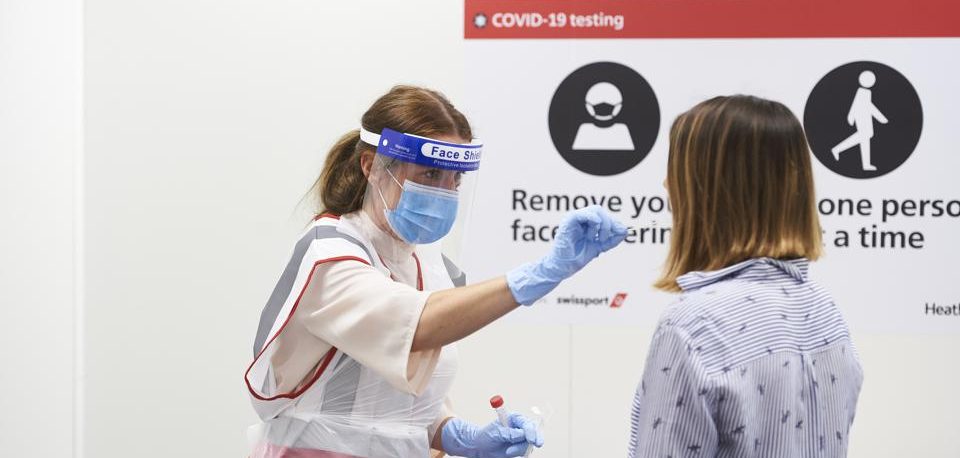The results of pre-departure testing trials carried out by four of Heathrow Airport’s transatlantic carriers – American Airlines, British Airways, United Airlines and Virgin Atlantic – will be brought together by a study commissioned to demonstrate the effectiveness of pre-departure testing for passengers on international routes. The final report will be shared with governments on both sides of the Atlantic.
The group study follows the UK government’s ‘Test to Release’ initiative, which from December 15, will give passengers arriving in the UK the option to reduce their quarantine period from 14 days to five, providing they test negative for the virus.
While the aviation industry has welcomed the scheme, it has made clear that the ultimate objective for passenger testing is a pre-departure regime, and the combined airline trials aim to make the case for this much needed solution. The study will be funded by Heathrow and seeks to provide a better understanding of how pre-departure testing could be used to safely eradicate the need for self-isolation on arrival.
Heathrow will have access to anonymized testing data generated by each of the separate pre-departure trials being conducted by participating airlines. Each trial is unique to each airline, but these variations will provide richer and more diverse data that the airport says will strengthen the study’s conclusions.
The cumulative results of the various tests will help the industry and governments to evaluate which pre-departure testing approach is practical and safe enough to replace quarantine and other travel restrictions. The number and scale of the carriers involved makes this the largest pre-departures study in the UK. Specialist oversight will be provided by Oxera and Edge Health, who will author the study.
The combined trials will be entirely free of charge for passengers and take place on selected transatlantic routes. It is expected that the study will assess the effectiveness of PCR tests, LAMP and Lateral Flow Antigen devices, where used on each airline’s trial routes. Some of the trials will make use of Collinson and Swissport’s testing facilities in Heathrow’s Terminal 2 and Terminal 5, which were launched earlier this year. All participants will need to abide by the UK government guidelines at the time of travel, such as the requirement that passengers arriving at Heathrow must self-isolate for 14 days or, from December 15, for five days, at which point a negative test result would release them from quarantine.
Heathrow CEO John Holland-Kaye commented, “These trials will build on the government’s initial testing strategy, setting a standard for a safer and more comprehensive approach to passenger testing, that we hope will accelerate the return to travel as we once knew it. With Brexit imminent, we need to urgently find the most effective way to restore the UK’s trading network and facilitate safe global travel, keeping Britain competitive as it leaves the EU.”
Shai Weiss, CEO, Virgin Atlantic, added, “Industry-led trials, like our own London Heathrow-Barbados testing pilot, build on existing evidence that an effective pre-departure testing regime can safely replace quarantine. Through close collaboration, trial results will add to the body of real-world evidence being aggregated by Heathrow in this landmark study.
“We call on UK government to move swiftly towards this model, in order to open up the skies, replace quarantine and boost consumer confidence. It will allow free movement of people and goods to resume, supporting the UK’s economic recovery and protecting more than 500,000 jobs reliant on aviation. We hope that testing will also lead the way for US borders to open to UK travelers.”

